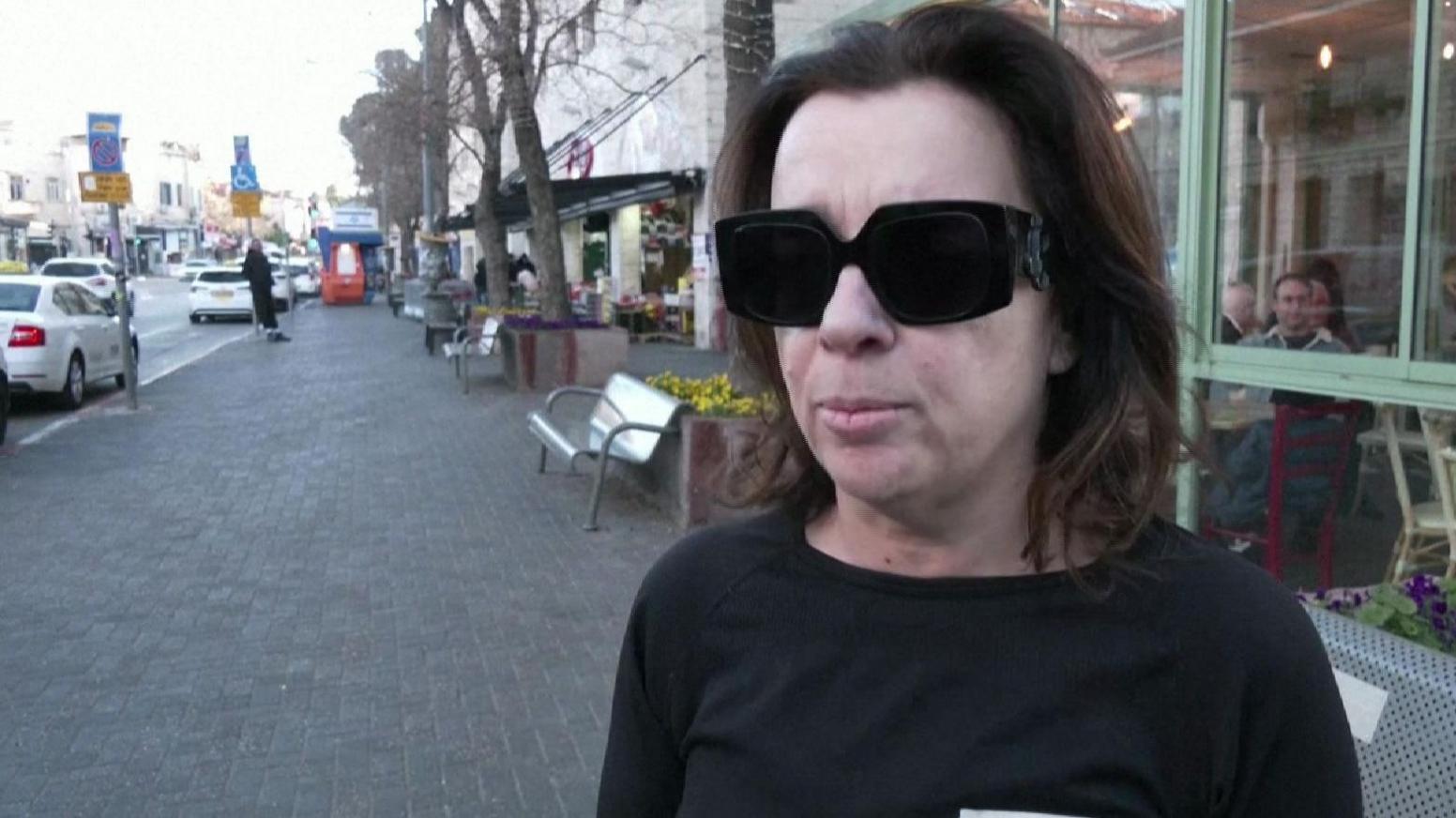Medic saved girl, 3, with bullet lodged in neck
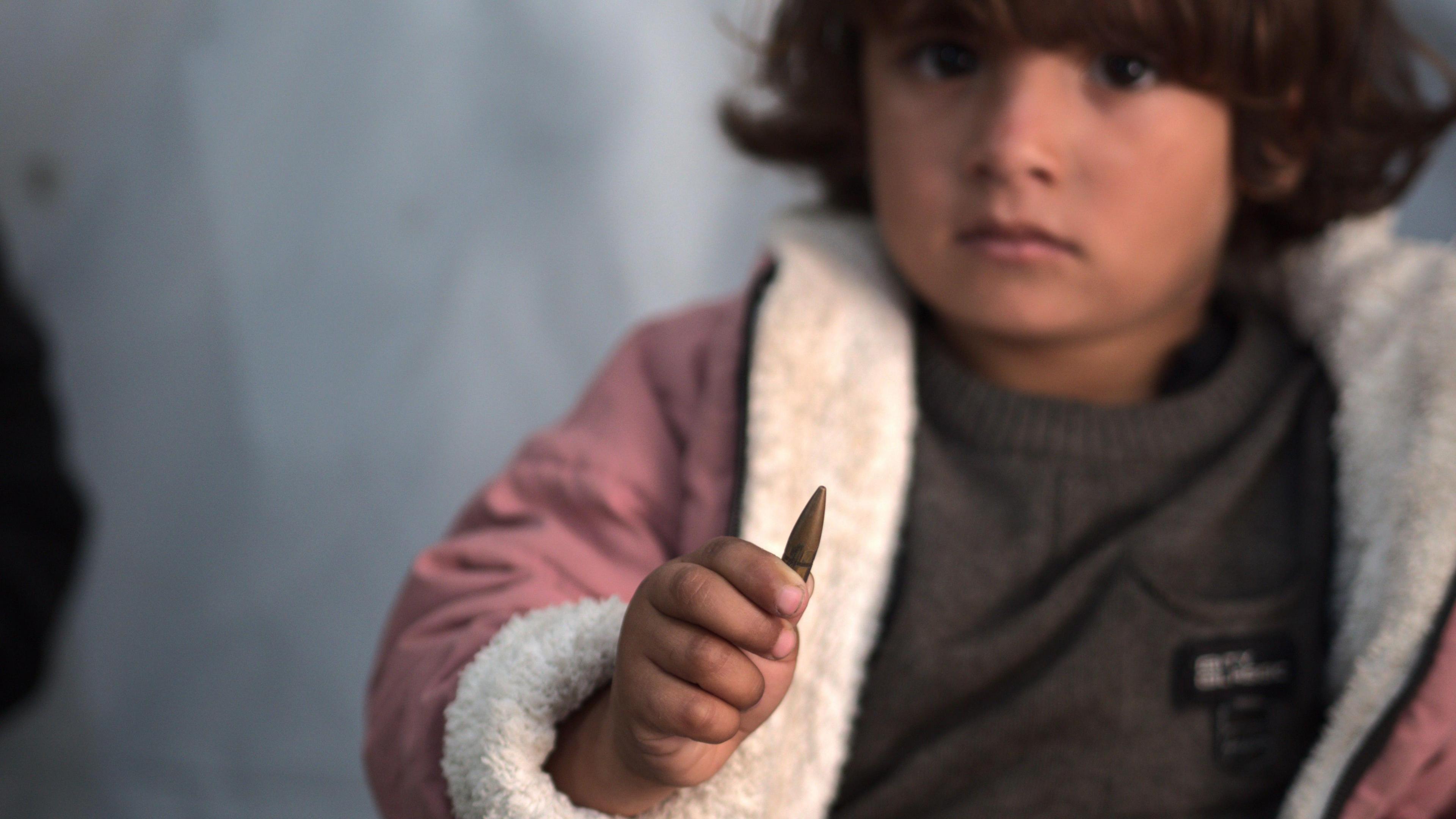
The bullet was surgically removed from Razan's neck
- Published
A nurse has spoken about the moment he helped save the life of a three-year-old Palestinian girl with a bullet lodged in her neck after it had ricocheted through her mother's body.
Medic David Anderson, from Rutland, spent six months last year in war-torn Gaza as part of the UK government's humanitarian response.
The 55-year-old said he could "never have imagined the horrors of war" that he witnessed.
"It's quite frankly a miracle they survived and the bullet was lodged just millimetres from the little girl's spinal cord," he said.
Warning: This story contains details that readers may find upsetting
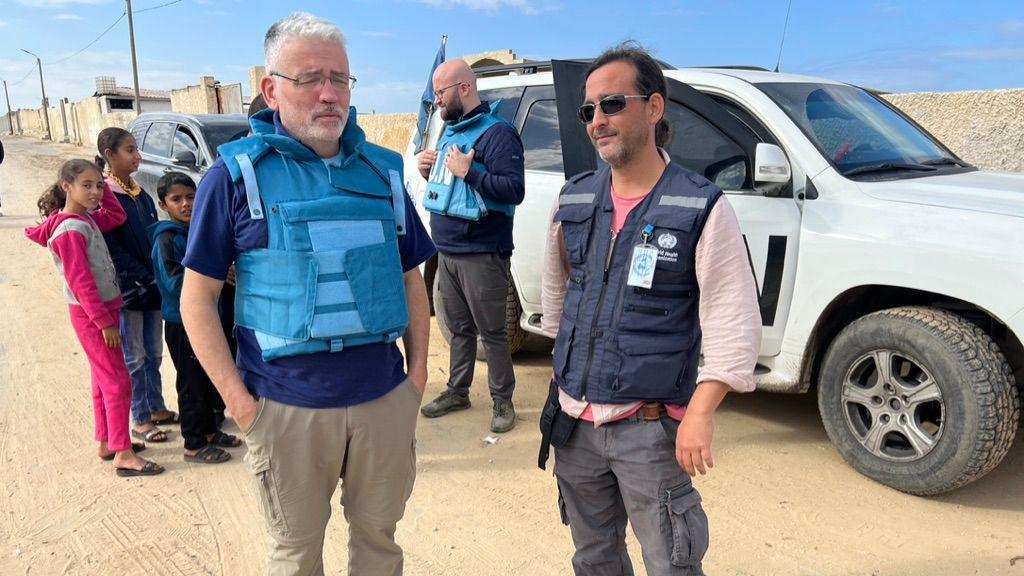
David Anderson from Rutland (left) spent six months in Gaza as a medic
The child, three-year-old Razan, is now making a full recovery after having the 7.92mm bullet removed.
"It took three hours of surgery to remove the bullet. It was only because it had gone through mum twice that the velocity had slowed sufficiently not to cause more serious damage to the child," Mr Anderson, who was born in Scotland, said.
"The family's story was heartbreaking. They'd fled northern Gaza when their apartment was hit by an airstrike at the beginning of the war.
"They had to step over dead bodies as they made their way south and had been displaced three times by the time they finally reached Al Mawasi [in the south, near Khan Younis]. They thought they had found safety... but they were wrong."
The conflict in Gaza has raged since hundreds of Hamas fighters stormed across Israel's southern border on 7 October 2023, killing about 1,200 people and taking more than 250 hostages.
Israel responded with a military campaign, including a full-scale ground invasion on 27 October 2023.
Since then, more than 46,000 people have been killed in Israel's attacks, according to Gaza's Hamas-run health ministry.
The Israeli military said its attacks on Gaza had targeted Hamas fighters and it had tried to avoid or minimise civilian casualties.
Hamas has responded to Israeli operations with rocket fire on Israel.
Mr Anderson said the ceasefire that started on Sunday, however "precarious", was "a hugely significant step toward relief for those affected".
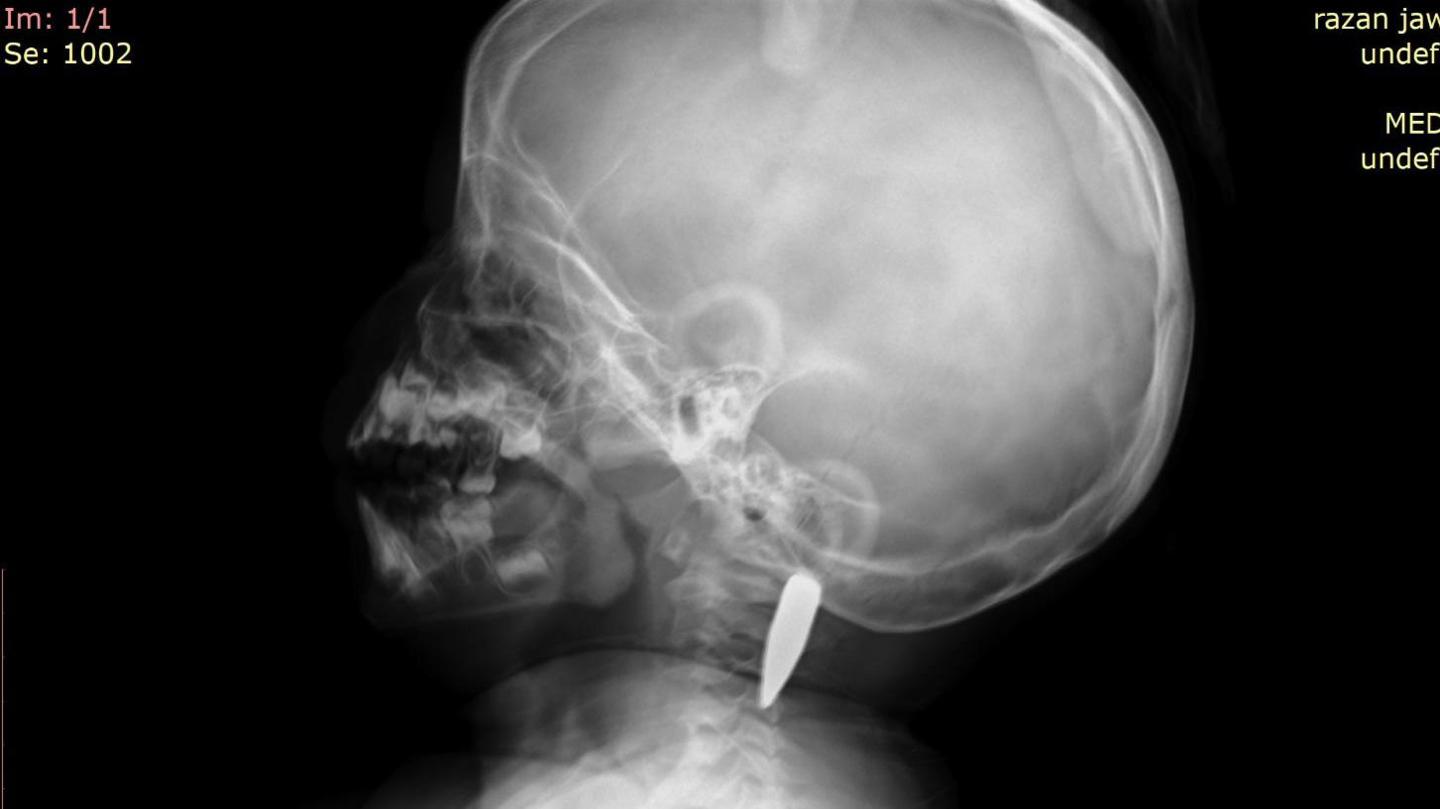
Mr Anderson said the bullet had been lodged just millimetres from her spinal cord
Mr Anderson was awarded an OBE in the King's New Year's Honours List and played a key role in helping establish two emergency field hospitals funded by the Foreign, Commonwealth & Development Office (FCDO).
Based in Al Mawasi and Deir El Balah, the hospitals have treated more than 350,000 patients.
He received the OBE for services to "the UK's Emergency Health Response overseas" having responded to various humanitarian crises including Gaza, Lebanon, Ukraine and the world's worst Ebola outbreak in Sierra Leone in 2014.
"I'm shocked but also honoured to have received an OBE," he said.
"It is also a reflection on the hard work and dedication of the whole team at UK-Med, both current and past, who support our work globally to ensure access to healthcare where it is most needed."
UK-Med is a humanitarian medical non-governmental organisation providing aid in conflict and disasters. It has also launched a Middle East Crisis Appeal, which has so far raised £200,000 to support its work in Gaza.
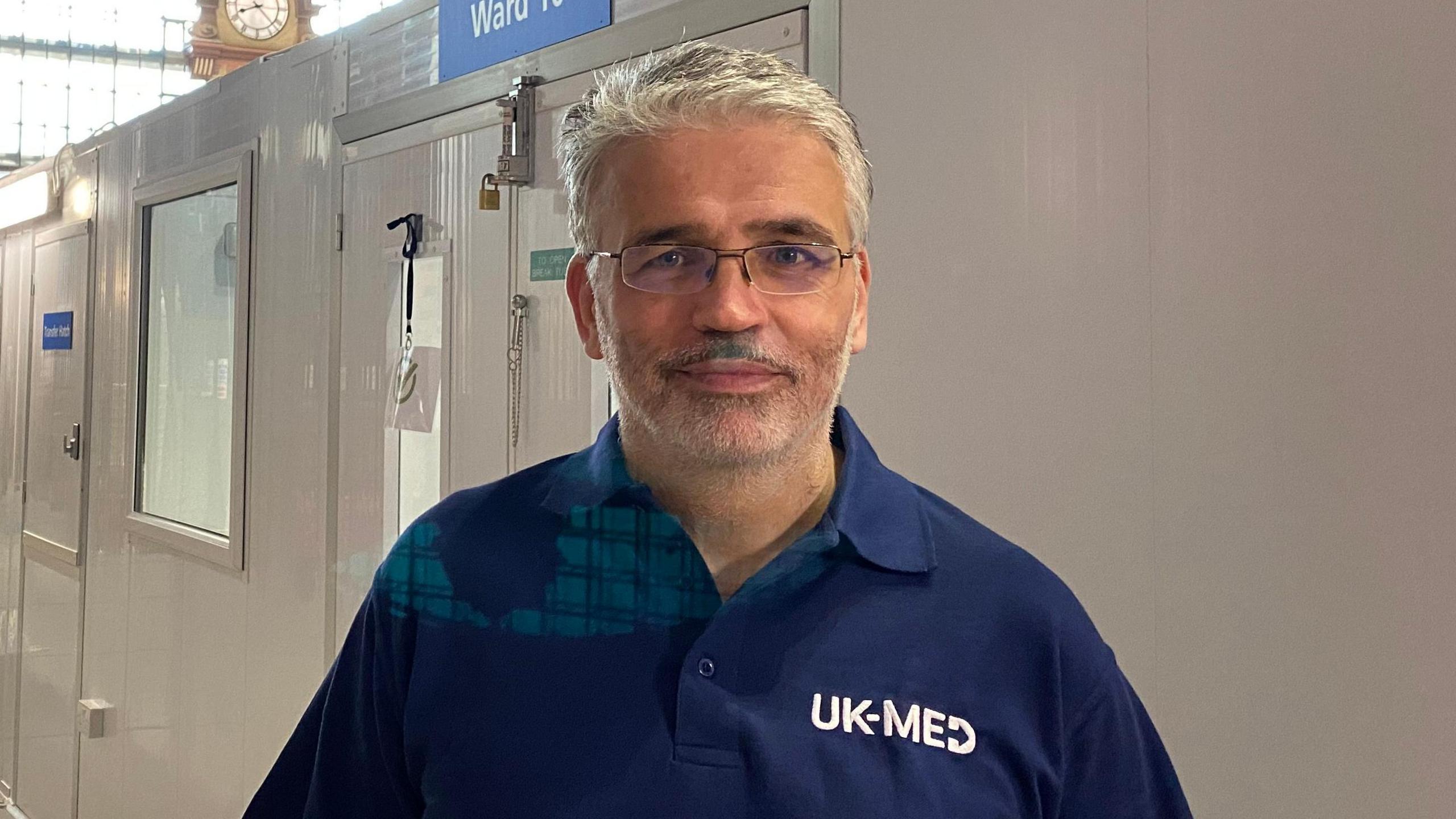
Mr Anderson said every day was "horror in Gaza right now"
Get in touch
Tell us which stories we should cover in Leicester
Follow BBC Leicester on Facebook, external, on X, external, or on Instagram, external. Send your story ideas to eastmidsnews@bbc.co.uk, external or via WhatsApp, external on 0808 100 2210.
Related topics
- Published19 January
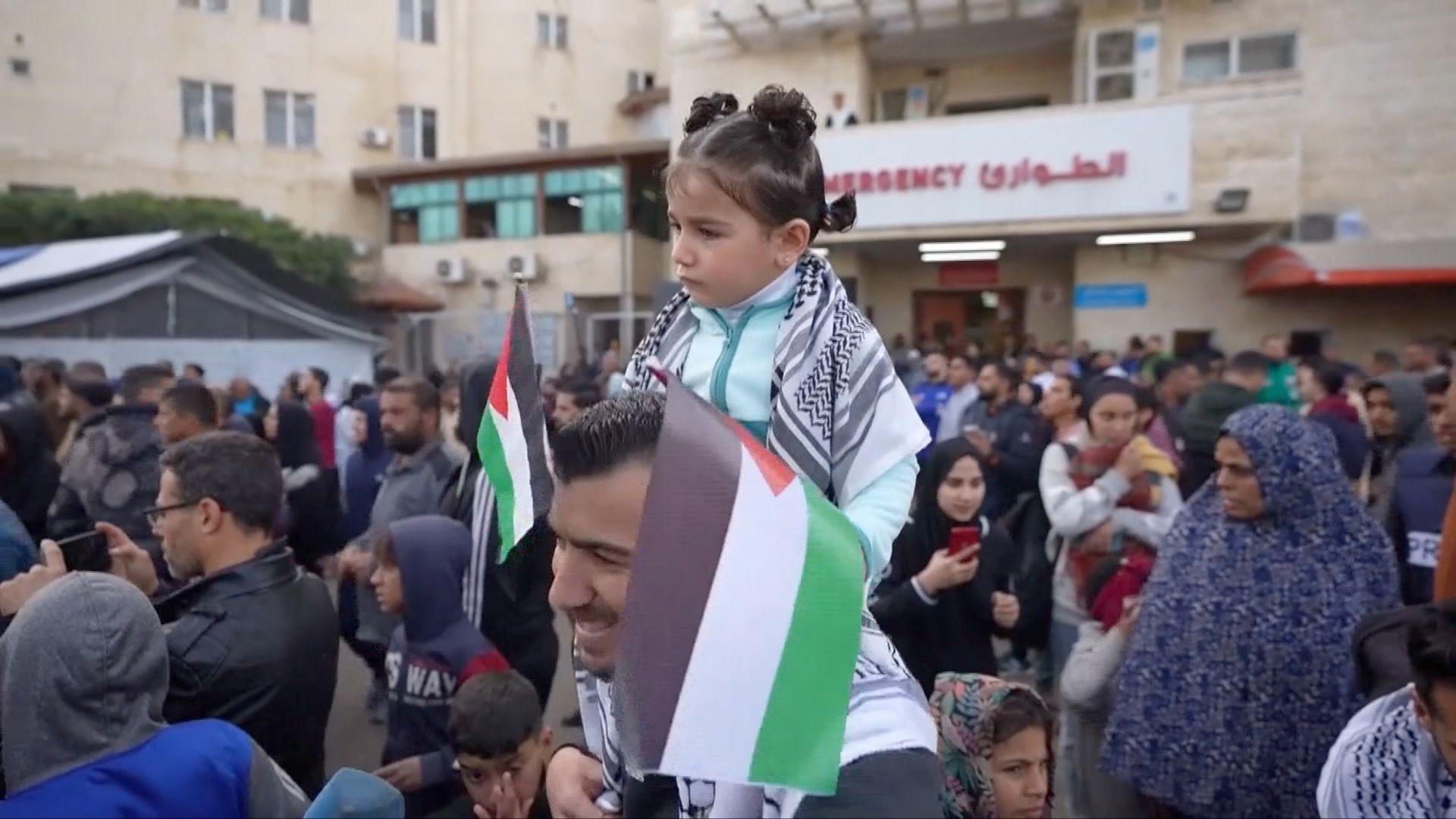
- Published19 January
